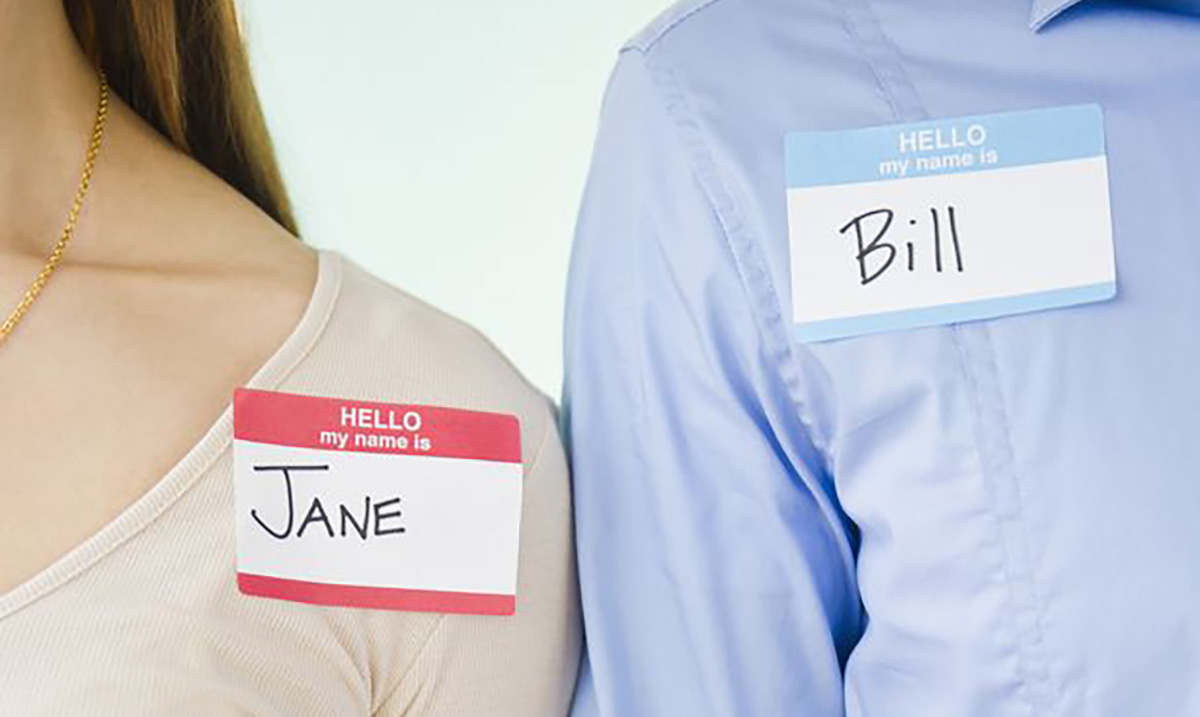You might think that certain people have a name that fits their face. There isn’t really a way to explain it, sometimes it just does. You can also tell when someone’s name doesn’t match their face!
Research from psychologists in New Zealand suggests that there might even be negative social consequences if your name does not match your face. This is called the bouba and kiki effect. If you see two abstract shapes, like the image to the right, that has one rigid and one rounded shape, which one would be named kiki and which one would be called bouba? Most people would say the rounded one would be bouba, and the rigid one to be kiki. Psychologists think this is because we pronounce the name bouba by rounding our mouths to produce the soft vowel sounds.
that has one rigid and one rounded shape, which one would be named kiki and which one would be called bouba? Most people would say the rounded one would be bouba, and the rigid one to be kiki. Psychologists think this is because we pronounce the name bouba by rounding our mouths to produce the soft vowel sounds.
Researchers believe that the association between mouth shape, sound, and appearance might be a form of synesthesia. People who experience this in higher levels might hear music when they read or taste flavors when they count! It’s fascinating honestly. This happens because the neurological signals are caused by one stimulus inadvertently trigger sensations in another part of your brain.
David Barton and Jamin Halberstadt from the University of Otago in New Zealand ran a series of experiments on this subject. They realize that faces, like abstract shapes, can vary in angularity and roundedness. David and Jamon photographed different men from various internet databases. They specifically chose faces that were varied in angularity. Volunteers looked at each of these faces and ranked how much they suited each face. Names that were soft and round were used like Jono, George, and Lou.
A new study had researchers use photographs of male US Senate candidates, and volunteers ranked their faces on angularity and roundedness. Some had angular faces and angular names, while others had round faces and round names.
They tested whether politicians whose names were congruent to their faces had more or fewer votes in their election. They found that well-named candidates did indeed secure more votes than their less aptly-named opponents. Candidates with very well-fitting names received 10% more votes than those with very poorly fitting names. Barton and Halberstadt report:
Barton and Halberstadt report: “People’s names, like shape names, are not entirely arbitrary labels. Face shapes produce expectations about the names that should denote them and violations of those expectations … feed into more complex social judgments, including voting decisions.”
